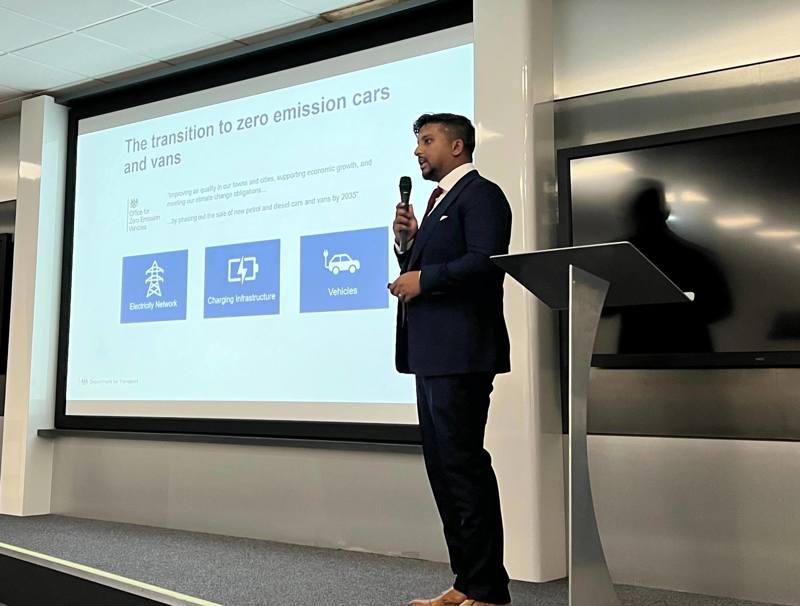
The Government recognises the challenges van operators are facing to electrify their fleets and is working to ease the transition, the Office for Zero Emission Vehicles told the Fleet 200 Strategy meeting.
“Everyone in this room will again, recognise the van transition has been lagging compared to where we are with cars,” said Abdul Chowdhury, head of vehicle policy at OVEZ (pictured).
“About 1% of vans in the UK are currently zero emission, compared to cars where it’s 2% of the total fleet.
“It’s on an upward trajectory, but there are more challenges in the electric van space than for electric cars and that's why we're doing lots of work around the cost and availability of these vehicles.”
The Government currently offers a plug-in van grant, which provides a contribution of a maximum of £5,000 towards the cost of van, while the ZEV mandate will encourage more of these vehicles to come into the market with the right range and payloads, he added.
One of the main challenges for electric vans is their payload considerations.
Chowdhury said: “What manufacturers have offered is 4.25 tonne electric vans which very much look and feel and even smell like a 3.5-tonne vehicle, but they fall just above the 3.5-tonne threshold and that's why in a lot of cases they fall into HGV regulations.
“We've already changed things such as licencing; you don't need operator licences for these 4.25-tonne vehicles, while you are also able to drive them on a standard driving licence.
“We need to now take those through the final bit, which is taking it through Parliament, so we're basically dependent on parliamentary timetables for next year.
“We’re also looking at other HGV regulations such as the MOT, tachographs, speed limits that vehicles of this weight would normally fall into to see if there's a safe way of bringing them into the sub-3.5 tonne regulations.”
Chowdhury said OZEV is also looking at the public charging infrastructure, making sure the programmes and funds such as the recently-announced rapid charging fund (RCF) take into account issues such as parking bay sizes and height restrictions, where electric vans face additional challenges compared to cars.
He was speaking in a session on transport decarbonisation, in which James Vickery, head of vehicle policy and CO2 regulation at the Department of Transport and Mollie Johnson, head of zero emission HGV infrastructure at the DfT also made presentations.






















Login to comment
Comments
No comments have been made yet.